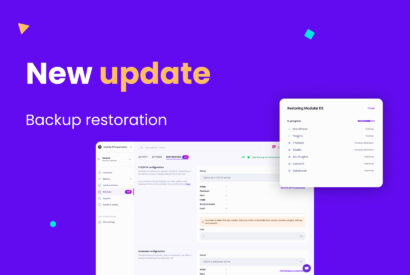B2B Marketing Automation for your company

Marketing automation has become an indispensable tool for B2B companies looking to optimize their processes and maximize efficiency. Implementing automated strategies not only saves time and resources, but also allows you to personalize communications on a large scale, improve lead generation and nurturing, and obtain real-time analytics for more informed decision making. In this article, we’ll explore why it’s crucial to integrate marketing automation into your B2B company and how it can transform your operations and bottom line.
Tabla de contenidos
What is a B2B marketing strategy?
A B2B (Business to Business) marketing strategy refers to the set of actions and tactics a company employs to promote its products or services to other companies. Unlike B2C (Business to Consumer) marketing, B2B marketing focuses on establishing long-term relationships, where purchasing decisions tend to be more complex and require more analysis. In this type of strategy, a high value is placed on building trust and demonstrating value through educational content, case studies, customer testimonials and product demonstrations.
What is marketing automation?
Marketing automation is the use of software and technology to automate marketing processes, such as customer segmentation, campaign management and performance tracking. This approach allows companies to be more efficient, personalize communication with their prospects and current customers, and measure the impact of their marketing efforts more accurately. By automating repetitive and administrative tasks, marketing teams can focus on creative strategies and activities that bring greater value to the business.
Why is marketing automation important for your B2B company?
Time and resource savings, improved efficiency, large-scale personalization, improved lead generation and nurturing, real-time analytics and optimization, consistency in communication, and higher return on investment (ROI).
How to choose B2B marketing automation software
Choosing the right B2B marketing automation software can be critical to the success of your campaigns. Here are some key points to make an informed decision:
- Define your objectives: Clearly identify what processes you want to automate and what your marketing goals are.
- Ease of use: Choose a platform that is intuitive and easy to use to ensure quick adoption by your team.
- Integration: Make sure the software integrates well with your current systems, such as your CRM and analytics tools.
- Support and training: Check that the vendor offers good technical support and training resources.
- Functionality: Check that the software offers the features you need, such as advanced segmentation and reporting.
- Scalability and costs: Make sure that the platform can grow with your business and that the costs are clear and reasonable.
- Opinions and case studies: Research experiences from other companies to learn the pros and cons of each option.
- Free trial or demo: Request a free trial to evaluate if the tool meets your expectations.
Examples of what I can automate in my company
- Automation of publications on social networks: Scheduling publications on different social platforms to maintain a constant presence.
- Web interaction tracking: Monitoring of visitor behavior on the website to identify patterns and conversion opportunities.
- Webinar automation: Scheduling and management of webinars, including reminders and follow-ups.
- Customer satisfaction surveys: Automated sending of surveys after a major purchase or interaction to collect feedback.
- Management of paid ads: Automatic optimization of advertising campaigns on platforms such as Google Ads or Facebook Ads.
- Creation of reports and analytics: Generation of periodic reports on the performance of marketing campaigns.
- Onboarding of new customers: Automated welcome and orientation process for new customers.
- Database update: Synchronization and cleansing of customer data to ensure accuracy of information.
- Content management: Planning and distribution of content across different marketing channels.
- Sales automation: Repetitive sales tasks, such as tracking quotes, proposals and contracts.
Automation tools
| Example of Automation | Available Tools |
|---|---|
| Email Marketing Automation | HubSpot, Mailchimp, ActiveCampaign |
| Lead Scoring | Marketo, Pardot, HubSpot |
| Lead Nurturing | HubSpot, Marketo, Eloqua |
| CRM Integration | Salesforce, Zoho CRM, Pipedrive |
| Social media publishing automation | Hootsuite, Buffer, Sprout Social |
| Web interaction tracking | Google Analytics, Hotjar, Mixpanel |
| Webinar automation | GoToWebinar, Zoom Webinars, WebinarJam |
| Customer satisfaction surveys | SurveyMonkey, Typeform, Qualtrics |
| Paid Ad Management | Google Ads, Facebook Ads Manager, AdEspresso |
| Reporting and analytics creation | Google Data Studio, Tableau, Power BI |
| Onboarding of new clients | Userlane, WalkMe, Pendo |
| Database upgrades | Zapier, Integromat, Talend |
| Content management | CoSchedule, Trello, Asana |
| Sales automation | HubSpot Sales, Salesforce, Pipedrive |
Conclusion
Implementing automation in your company will not only help you optimize marketing and sales processes, but also improve operational efficiency and customer satisfaction. By selecting the right tools for each process, you can personalize the customer experience and achieve greater precision in the execution of your business strategies. The key is to identify the areas that would benefit most from automation and choose the tools that best suit your specific needs.


